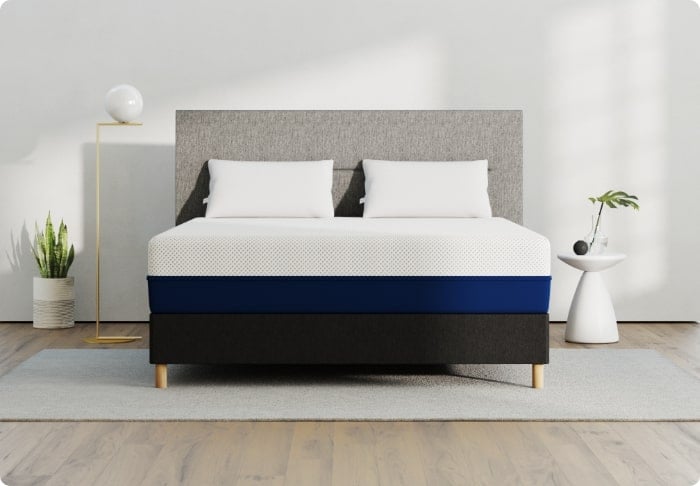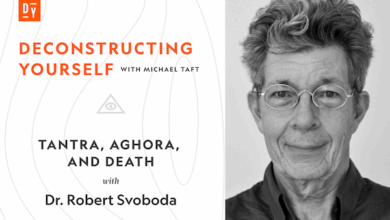Does the Caveman Method Work for Cooler Sleep?

Key Takeaways
- Stop perfectionist sleep anxiety: Accept “good enough” sleep and natural nighttime awakenings instead of stressing about getting exactly 8 hours.
- Make your bedroom cave-like: Keep it cool (60-67°F) and completely dark by covering lights and using blackout curtains.
- Follow natural light cycles: Get morning sunlight within an hour of waking, then dim lights 2-3 hours before bed.
You toss and turn every night, watching the clock and worrying about whether you’ll get your “perfect” eight hours of sleep. Your ancestors never owned alarm clocks, sleep trackers, or blackout curtains, yet they slept deeply and woke up refreshed.
See, cavemen had sleep habits that might solve your modern sleep struggles. They slept in cool, dark caves and followed natural light patterns that helped their bodies rest better than most people do today.
You stress about sleep schedules and perfect bedtime routines, but early humans simply listened to their bodies and the rhythms of day and night. The pressure to achieve flawless sleep often makes your sleep worse, not better. Learning how cavemen slept could be the key to finally getting the restful nights you’ve been searching for.
Ready to discover how ancient sleep wisdom can transform your nights? Read on to learn the simple strategies that helped our ancestors sleep better than most modern people ever do.
Modern Sleep Issues
Your daily life
creates sleep challenges
that cavemen never experienced. The constant pressure to achieve perfect rest often makes your sleep problems worse instead of better.
Why you feel stressed about getting perfect sleep
Sleep advice bombards you from every direction, telling you to get exactly eight hours or face serious health consequences. You lie awake calculating how many hours remain before your alarm goes off, which creates anxiety that keeps you awake even longer.
Every sleep app notification and fitness tracker reminder adds pressure to perform perfectly at something that should come naturally. When you don’t hit your sleep goals with a wearable tracker, you feel like you’re failing at a basic human need.
This stress about sleep quality becomes its own problem, creating a cycle where worrying about rest prevents you from actually resting. Your brain treats sleep like another task to master instead of a natural process to trust.
How cavemen slept without alarms or sleep trackers
Cavemen went to sleep when darkness fell and woke up naturally with the sunrise, without any devices telling them what to do. They slept in segments throughout the night, waking briefly to tend fires or watch for danger before falling back asleep easily.
Cold caves and changing seasons guided their sleep patterns better than any modern technology ever could. Cavemen never counted sleep hours or worried about sleep efficiency because their bodies simply followed natural rhythms, such as body temperature.
They trusted their internal clocks instead of fighting against them with artificial schedules and bright lights. Their sleep happened automatically because they lived in harmony with day and night cycles that regulated their bodies perfectly.
What you can learn from sleeping like cavemen
Cavemen show you that perfect sleep doesn’t require perfect conditions or complicated rules. They prove that waking up during the night is completely normal and doesn’t mean your sleep is broken or unhealthy.
Cavemen demonstrate that cool, dark sleep environments help your body produce the hormones it needs for deep, restorative rest. They teach you to work with seasonal changes instead of forcing your body to maintain the same schedule year-round.
Most importantly, cavemen show you that trusting your body’s natural wisdom works better than stressing about sleep performance.
Following their simple approach of darkness, coolness, and natural timing can solve many modern sleep struggles without expensive gadgets or complicated techniques.
Stop Worrying About Perfect Sleep
The modern obsession with perfect sleep actually destroys your ability to rest naturally. The biggest obstacle to good sleep often isn’t your mattress or room temperature, important as they are.
No, it’s your anxiety about sleeping perfectly. Cavemen never stressed about sleep performance, yet they woke up refreshed and ready for their demanding lives. Strict rules and high expectations turn sleep into a stressful performance instead of a peaceful process.
How strict bedtimes create anxiety instead of rest
Forcing yourself to go to bed at the exact same time every night makes your brain treat sleep like a deadline you must meet.
You start watching the clock hours before bedtime, worrying about whether you’ll fall asleep fast enough to get your required eight hours.
This anxiety floods your system with stress hormones that keep you wide awake, creating the opposite effect of what you want.
Cavemen never followed rigid schedules because they understood that natural sleepiness varies from day to day based on activity, weather, and seasons.
They trusted their bodies to know exactly how much sleep they needed without any external guidelines or measurements, going to sleep when they felt tired and waking up when their bodies had recovered.
Your body knows when it needs rest, but strict bedtime rules override this natural wisdom and replace it with artificial pressure.
Why forcing yourself to sleep backfires every time
Trying to force sleep activates your sympathetic nervous system, which is designed to keep you alert and ready for action.
The harder you try to fall asleep, the more your brain interprets this effort as a sign that something important is happening that requires attention.
Sleep only comes when you feel safe and relaxed, but forcing creates tension that signals danger to your primitive brain systems. This sort of phenomena is the basis for tricks like paradoxical intention for sleep, where you try to stay awake instead.
Cavemen fell asleep easily because they approached rest with patience and trust rather than urgency and control. Their relaxed attitude toward sleep actually improved their sleep quality because stress hormones never interfered with their natural rest cycles.
Your body responds better to gentle invitation than forceful demands, which is why “trying” to sleep always backfires.
Why watching the clock ruins your natural sleep pattern
Clock-watching turns every minute awake into evidence that your sleep is failing, which increases anxiety and makes falling asleep even harder.
Your brain starts doing math about lost sleep hours instead of focusing on the relaxation needed for natural rest.
The bright light from digital clocks also suppresses melatonin production and signals to your brain that it’s time to be awake and alert.
Cavemen had no way to track time during the night, so they simply rested in darkness until their bodies naturally felt ready to wake up. This approach allowed their internal rhythms to guide their sleep instead of external pressure and time anxiety.
Removing clocks from your view allows your natural sleep cycles to function without the interference of performance monitoring.
Why you feel stressed when sleep doesn’t go perfectly
Every night that doesn’t match your sleep goals feels like a personal failure that damages your confidence about future rest.
You start catastrophizing about how bad sleep will ruin your next day, which creates a cycle of worry that guarantees more sleepless nights from orthosomnia.
Social media and health apps constantly remind you about the “dangers” of imperfect sleep, adding guilt to your already frustrated feelings.
Cavemen never judged their sleep quality because they trusted that their bodies would naturally balance periods of lighter and deeper rest over time.
They never achieved perfect sleep every single night, yet they maintained excellent health and energy because they focused on overall rest patterns rather than individual night performance.
This acceptance allowed them to stay relaxed even during challenging nights, which helped them return to good sleep faster.
How “good enough” sleep works better than perfect sleep
Your body naturally balances lighter and deeper sleep periods over several days, which means one imperfect night doesn’t ruin your health or next-day function.
Accepting “good enough” sleep reduces the performance anxiety that actually interferes with your ability to rest well on future nights.
Cavemen understood that some nights would bring lighter sleep due to weather, noise, or natural body rhythms, and they simply trusted that better sleep would come when their bodies needed it.
This realistic approach prevented the perfectionist mindset that creates ongoing sleep anxiety in modern people. People who aim for “good enough” sleep actually sleep better than those who chase perfect rest every night because they eliminate the stress that turns natural sleep cycles into frustrating sleep struggles.
Ways to stop judging your sleep performance
Remove sleep tracking apps and devices that turn your natural rest into a graded performance that you can pass or fail.
These tools create the same anxiety that keeps you awake by making every night feel like a test of your sleep abilities. Stop asking yourself “How did I sleep?” first thing in the morning because this question immediately puts you in judgment mode rather than simply noticing how you feel.
Cavemen never rated their sleep quality because they understood that energy levels fluctuate naturally based on many factors beyond just nighttime rest.
Replace sleep performance thoughts with gentle acceptance by telling yourself “My body got the rest it needed” regardless of how the night felt.
Focus on how you feel during the day rather than analyzing every detail of your nighttime experience, since daytime energy is the real measure of adequate rest.
Trust that your body knows how to sleep just like cavemen did, without constant evaluation and criticism of this natural biological process.
Accept nighttime awakenings as completely normal parts of human sleep cycles that require no fixing or concern. Learning to rest calmly during brief awake periods, rather than fighting against them, eliminates the stress that prevents you from falling back asleep easily.
Easy Ways to Start
You don’t need weeks of preparation to start sleeping like cavemen. Many changes work immediately. These simple adjustments help your body rediscover the natural sleep patterns that kept early humans well-rested.
Quick changes you can make to your bedroom right now
Transform your bedroom into a cave-like environment tonight using items you already have around your house.
- How to cool down your room fast: Open windows if it’s cool outside, turn on a fan, lower your thermostat to 65 degrees, or use a cold pack on your neck for a few minutes before bed to help your body temperature drop naturally.
- Simple tricks to make your room darker: Cover electronic lights with tape, close all curtains and blinds, turn off hallway lights, and consider using a towel under your door to block light from other rooms until you can get blackout curtains.
These immediate changes create the cool, dark conditions that signal your brain to start producing sleep hormones just like cavemen experienced in their natural sleeping spaces.
New daily habits that improve your sleep
Building simple routines around light exposure and evening activities helps your body follow the same natural rhythms that regulated cavemen’s sleep cycles.
- Morning routines that help you sleep better at night: Get outside for 15-30 minutes within an hour of waking up, eat breakfast near a bright window, or take a short walk to expose your eyes to natural light that sets your internal clock for the day.
- Evening activities that prepare your body for rest: Dim lights throughout your home 2-3 hours before bedtime, switch to reading physical books instead of screens, take a warm bath or shower to help your body temperature drop afterward, signaling sleep time.
These daily patterns mirror the natural light and activity cycles that helped cavemen feel naturally sleepy at the right times without any artificial sleep aids.
Changing how you think about sleep
Adopting cavemen’s relaxed attitude toward sleep eliminates the performance pressure that keeps many modern people awake at night.
- Letting go of sleep perfectionism: Stop tracking exact sleep hours, accept that some nights will be lighter than others, and remember that cavemen thrived without perfect sleep every single night of their lives.
- Trusting your body to know what it needs: Listen to natural sleepiness cues instead of forcing bedtimes, allow yourself to rest when tired regardless of the clock, and trust that your body will balance sleep naturally over several days just like cavemen’s bodies did.
This mental shift from controlling sleep to trusting your body’s wisdom creates the relaxed mindset that allows natural sleep to happen effortlessly, just as it did for our cave-dwelling predecessors.
Using Sunlight and Darkness
Cavemen’s sleep patterns followed the natural rhythm of light and darkness that regulated their internal clocks perfectly. You can restore this ancient timing system by strategically using sunlight and darkness throughout your day.
Getting bright light in the morning
Morning sunlight acts like a natural alarm clock that tells your brain to stop producing sleep hormones and start feeling alert and energized.
Bright light hitting your eyes in the morning shuts off melatonin production and triggers the release of cortisol and other wake-up hormones that make you feel naturally alert without caffeine.
Get at least 15-30 minutes of direct sunlight within the first hour of waking up, preferably by going outside or sitting near a large window to reset your internal clock for the day.
This morning light exposure creates the same powerful wake-up signal that helped cavemen feel energized and ready for their daily activities.
Dimming lights as evening approaches
Gradually reducing light levels in the evening mimics the natural sunset that signaled cavemen’s brains to start producing sleep hormones.
Artificial lighting after sunset tricks your brain into thinking it’s still daytime, which delays melatonin production and pushes your natural bedtime later than your body actually needs.
Begin dimming lights and avoiding bright screens about 2-3 hours before your intended bedtime to give your brain enough time to shift into sleep mode naturally.
Following this gradual darkening pattern helps your body produce the same evening drowsiness that made falling asleep effortless for cavemen.
Adjusting your sleep with the seasons
Cavemen naturally slept longer during dark winter months and shorter during bright summer nights, which kept their energy levels balanced year-round.
Your body produces melatonin earlier and for longer periods during winter’s extended darkness, making you naturally sleepier and requiring more rest than during summer’s long daylight hours.
Forcing yourself to maintain the exact same sleep schedule year-round works against your body’s seasonal rhythms and can create ongoing fatigue and sleep difficulties.
Accepting these natural seasonal changes allows your sleep to flow with the same light patterns that kept cavemen healthy and well-rested throughout the changing year.
Cave-Like Bedroom
Transforming your bedroom into a cave-like environment recreates the natural conditions that helped cavemen sleep deeply. These simple changes work with your body’s ancient programming instead of fighting against it.
Why you need to keep your bedroom cool for better sleep
Cool temperatures for sleep signal your brain that it’s time to rest, just like the natural drop in temperature that happened at sunset for cavemen.
Keep your bedroom temperature between 60 and 67 degrees Fahrenheit for optimal sleep, as this range allows your body temperature to drop naturally and triggers the release of sleep hormones.
Your core body temperature must drop by about two degrees before you can fall into deep sleep, and cool air speeds up this natural cooling process that prepares your brain for rest.
This temperature drop mimics the natural cooling that cavemen experienced in their cave homes, making sleep feel effortless and automatic. It’s especially important to promote the right temperature for sleep in the summer.
Making your room as dark as possible
Even small amounts of light from alarm clocks, phone chargers, or streetlights can distract you and confuse your brain about whether it’s time to sleep or wake up.
Complete darkness allows your brain to produce maximum amounts of melatonin, the same way cavemen’s bodies responded to the total blackness of their caves.
Install blackout curtains in the bedroom, cover LED lights on electronics with tape, use an eye mask if needed, and keep hallway lights off to create the pitch-black environment your brain expects for deep sleep.
Creating true darkness in your bedroom helps your body produce the same powerful sleep chemicals that kept cavemen rested and healthy.
Getting rid of things that keep your brain awake
Removing stimulating technology from your bedroom creates the calm, quiet environment that naturally promotes rest, similar to the peaceful caves where cavemen slept.
Blue light from phones, tablets, and TVs mimics daylight and signals your brain to stop producing melatonin, keeping you artificially awake when your body should be preparing for sleep.
Read physical books, practice gentle stretching, or write in a journal before bed to help your mind transition from the busy day to peaceful rest without screen stimulation.
Eliminating these modern distractions allows your brain to follow the same natural wind-down process that helped cavemen transition smoothly from wakefulness to deep sleep.
Why Ancient Sleep Wisdom Works for Modern People
Cavemen fixed their sleep problems using simple methods that science now shows work better than fancy solutions. They succeeded because they helped their bodies sleep naturally instead of fighting against what felt right.
- Simple solutions beat complicated ones – Cavemen needed only three things for great sleep: darkness, cool air, and following day and night cycles, while you probably try many apps and gadgets that make sleep harder.
- Working with your body gives better results than fighting it – Your body still uses the same sleep system that kept cavemen healthy, so you sleep better when you follow natural patterns instead of strict schedules.
- Your first steps toward sleeping like cavemen – Make your bedroom dark and cool tonight, then step outside or sit by a big window within one hour of waking up to help your body know when to sleep.
Simple methods take away the worry and confusion that come from trying to make every part of your sleep perfect. You get better rest when you trust your body’s old wisdom instead of forcing it to follow new rules.
FAQs
Is it safe to sleep in a really cold room like cavemen did?
Yes, sleeping in a cool room between 60-67 degrees Fahrenheit is completely safe and actually improves your sleep quality significantly.
Your body naturally drops its core temperature by about two degrees when preparing for sleep, and a cool environment helps this process happen faster and more efficiently.
Cavemen slept in naturally cool caves year-round without any health problems, and modern research confirms that cooler sleeping temperatures promote deeper, more restorative rest.
Just make sure you have adequate blankets to stay comfortable while still allowing your room to remain cool.
Will I really sleep better if I wake up during the night like cavemen did?
This is a slight misunderstanding of how to apply caveman principles to your modern, as you don’t need to necessarily try and segment your sleep schedule. But waking up briefly during the night is completely normal and doesn’t mean your sleep is broken or unhealthy in any way.
Cavemen regularly experienced these natural awakenings and used them to check their surroundings before easily returning to sleep without any stress or worry. The key is accepting these wake-ups as natural instead of panicking about lost sleep, which creates anxiety that actually prevents you from falling back asleep.
Remaining calm during nighttime awakenings can help you fall back asleep much faster than those who check clocks or worry about their sleep performance.
How dark does my bedroom really need to be for the caveman method to work?
Your bedroom should be as close to complete darkness as possible, similar to the pitch-black caves where cavemen slept naturally. Even small amounts of light from alarm clocks, phone chargers, or streetlights can suppress your body’s melatonin production and interfere with deep sleep.
Cover or remove all sources of artificial light, use blackout curtains if possible, and consider an eye mask if you can’t eliminate every light source.
The darker your room, the more effectively your brain will produce the sleep hormones that made cavemen’s rest so refreshing and restorative.
What if I can’t get morning sunlight because of my work schedule?
If you can’t get outside for morning sunlight, try to get bright light exposure as early as possible in your day, even if it’s through a large window or during a lunch break.
The goal is to signal your internal clock when your “day” begins, which doesn’t have to match traditional sunrise times if you work unusual hours.
Consider using a bright light therapy lamp for 15-30 minutes when you wake up if natural light isn’t available during your morning routine.
Cavemen adapted their sleep patterns to seasonal changes, so you can adjust the timing while keeping the principle of bright light exposure to regulate your internal clock.
How long should I try the caveman sleep method before deciding if it works?
Give the caveman sleep method at least 4-6 weeks to see significant improvements, as your body needs time to adjust from artificial sleep schedules to natural rhythms.
You may notice some immediate benefits like falling asleep faster in a cool, dark room, but full adjustment of your internal clock takes longer.
Most people experience reduced sleep anxiety within the first 2-3 weeks and see major improvements in sleep quality after 6-8 weeks of consistent practice.
Remember that cavemen didn’t achieve perfect sleep every night, so focus on overall improvements rather than expecting immediate perfection.
Can I use the caveman sleep method if I live in a noisy city environment?
Yes, you can adapt the caveman sleep method to work in noisy urban environments by focusing on the elements you can control.
Create the cool, dark cave-like conditions in your bedroom while using earplugs, white noise machines, or soft background sounds to mask city noise.
Cavemen dealt with natural nighttime sounds from animals and weather, so some ambient noise won’t prevent the method from working effectively.
The key is maintaining the core principles of darkness, coolness, and relaxed acceptance of natural sleep patterns regardless of your urban surroundings.
What’s the biggest mistake when trying to sleep like cavemen?
The biggest mistake is expecting perfect results immediately and giving up when sleep doesn’t improve within the first few nights of trying these changes.
Many people also make their rooms too cold too quickly or become frustrated when they still wake up during the night, not understanding that this is completely normal.
Another common error is continuing to track sleep performance and judge nighttime awakenings instead of adopting the relaxed, trusting attitude that cavemen had toward rest.
Success with this method requires patience and trust in your body’s natural wisdom rather than trying to control or perfect every aspect of your sleep experience.
How can I better embrace seasonal changes to improve sleep?
Your body naturally wants more sleep during winter’s longer nights and less during summer’s extended daylight, so adjusting your schedule with the seasons works better than forcing the same bedtime year-round.
In your winter bedroom, embrace earlier sleep times when darkness falls sooner and allow yourself extra rest when your body produces melatonin for longer periods.
During warmer months, your summer bedroom can accommodate later bedtimes since natural light extends well into the evening, and you’ll likely need less total sleep when daylight hours are maximized.
This seasonal flexibility mirrors how cavemen naturally adjusted their rest patterns throughout the year, leading to better energy levels and less sleep frustration.
Conclusion
The caveman sleep method offers a completely different approach to rest that works for some people but may not suit everyone’s lifestyle or preferences.
While modern sleep science supports many of these ancient principles like cool temperatures and darkness, your individual results will depend on factors like your living situation, work schedule, and personal sleep patterns.
Some people find immediate relief from sleep anxiety when they stop chasing perfect eight-hour blocks, while others prefer the structure of consistent bedtimes and sleep tracking.
The beauty of this approach lies in its simplicity. You can test these changes without buying expensive equipment or completely overhauling your life.
Try making your room cooler and darker for a few weeks, get morning sunlight when possible, and see how your body responds to this more natural approach.
What worked for cavemen thousands of years ago might surprise you with how well it fits your modern sleep needs, or you might discover that other methods work better for your unique situation.
The only way to know if sleeping like a caveman will improve your rest is to give these time-tested strategies a genuine try and let your own experience guide your decision.





